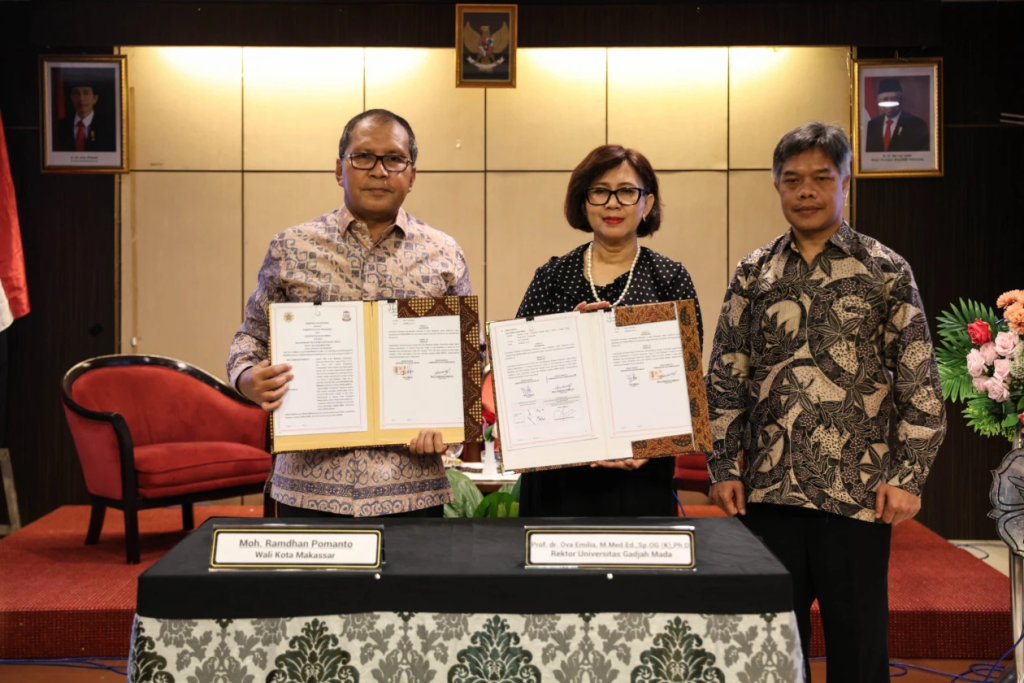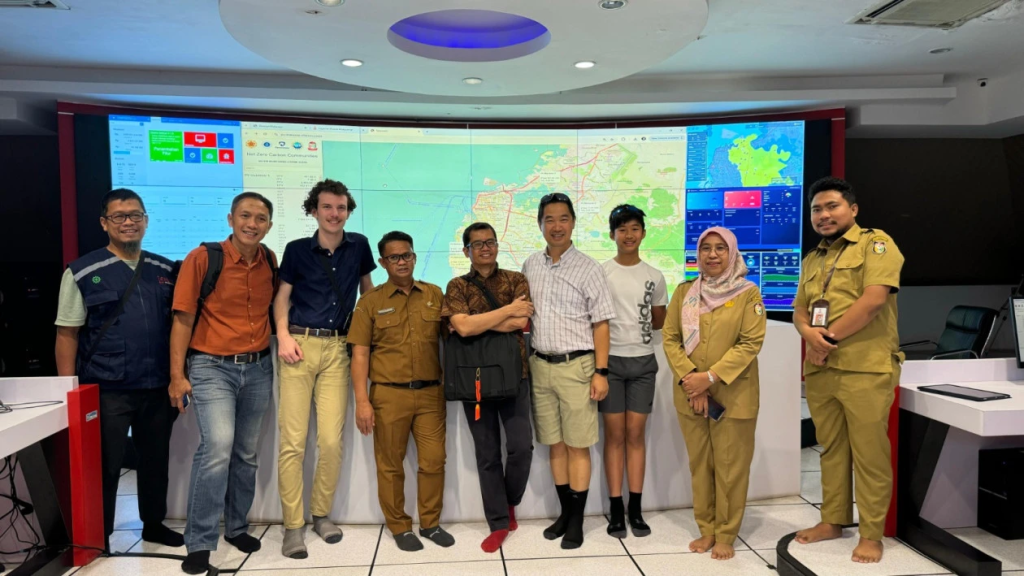As global temperatures rise and the need for climate action intensifies, Universitas Gadjah Mada along with the Indonesian government, as well as local governments, have joined forces to pioneer clean energy policies together.
UGM and the Government of Makassar City, South Sulawesi, have initiated a collaboration to develop low-carbon city policies as part of broader climate action strategies. This partnership highlights the urgency of addressing rising global temperatures exacerbated by carbon emissions, with a focus on urban solutions through policy development. Makassar’s success in reducing carbon emissions serves as a model for all Indonesian cities, demonstrating the importance of community-driven initiatives like transforming city alleys into green alleys and economically productive spaces through public engagement and programs such as Protokol Sentuh Hati. The collaboration seeks to replicate and enhance Makassar’s strategies through mutual learning and optimised synergies, contributing to global efforts to limit temperature rise to below 1.5 degrees Celsius.

Collaboration between UGM and the Government of the City of Makassar
Source: https://ugm.ac.id/id/berita
UGM and the Government of Makassar City are also two of many prolific institutions that have joined hands to establish the Centre for Development of Sustainable Region (CDSR) consortium. Together with reputable researchers from universities across Indonesia and abroad, including the University of Colorado Boulder, Penn State, Virginia Tech, and Institut Teknologi Bandung, the consortium is implementing a renewable energy utilisation program in Makassar City which aims to enhance community welfare and reduce carbon footprint emissions. For years, these researchers have surveyed the integration of sustainable technology into the daily lives of communities and government operations.

Sustainable Technology Integration into Makassar City’s Communities and Government Operations
Source: https://ugm.ac.id/id/berita
The collaboration between UGM, the Government of Makassar City, and the CDSR consortium aligns with Indonesia’s broader commitment to renewable energy development as outlined in Indonesia’s National Energy Plan (RUEN). While initiatives like the renewable energy program in Makassar demonstrate localised efforts to enhance community welfare and reduce carbon emissions, these align with national ambitions to achieve 23% renewable energy use by 2025.
The draft Renewable Energy and New Energy Bill (RUU EBET), currently under review by the Indonesian House of Representatives (DPR RI), seeks to build on such initiatives by addressing fossil fuel dependency and accelerating clean energy adoption. To refine this policy framework, energy experts, including UGM’s Prof. Tumiran, have contributed visionary strategies integrating renewable energy with economic growth and industrial expansion to the policy draft. The Indonesian House of Representatives has also sought input for the EBET Bill from UGM’s Faculty of Engineering.
The refinement of the Renewable Energy and New Energy Bill (RUU EBET) has spurred collaborations that extend beyond legislative discussions, highlighting the need for integrated approaches to clean energy solutions. Complementing this effort, UGM hosted the Microgrid Technologies for Remote Indonesian Islands (Tech-IN) Workshop, a forum for policymakers from the government, researchers from national and international energy research institutions, academics from universities, as well as managers and engineers from industry to share ideas and research results related to the application of system technology microgrids in remote locations in Indonesia. This forum represents a collaborative effort in energy policy research, bringing together both private and public institutions alongside a robust national and international network. Key participants include the Center for Research on Microgrids (CROM), the Ministry of Energy and Mineral Resources of the Republic of Indonesia, the National Energy Council, PT PLN (Persero), the Government of West Nusa Tenggara, Aalborg University in Denmark, the Center for Energy Informatics at the University of Southern Denmark (SDU), and the Danish International Development Agency (DANIDA).
These collaborative efforts, from local initiatives in Makassar to the refinement of national clean energy policies like the RUU EBET, underscore the importance of integrating sustainable technologies and inclusive strategies. By planting seeds of cooperation among communities, governments, and international stakeholders, UGM is paving the way for a greener future, setting an example for renewable energy innovation and energy policy development worldwide.
References:
- Collaboration between UGM and the Government of the City of Makassar
- Sustainable Technology Integration into Makassar City’s Communities and Government Operations
- Prof. Tumiran, have contributed visionary strategies integrating renewable energy with economic growth and industrial expansion
- The Indonesian House of Representatives has also sought input for the EBET Bill from UGM’s Faculty of Engineering
- Microgrid Technologies for Remote Indonesian Islands (Tech-IN) Workshop
